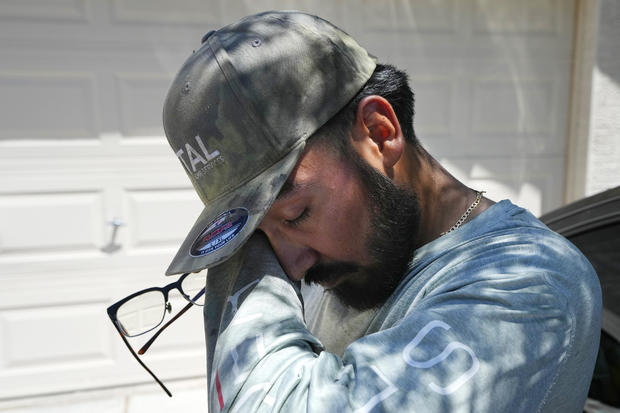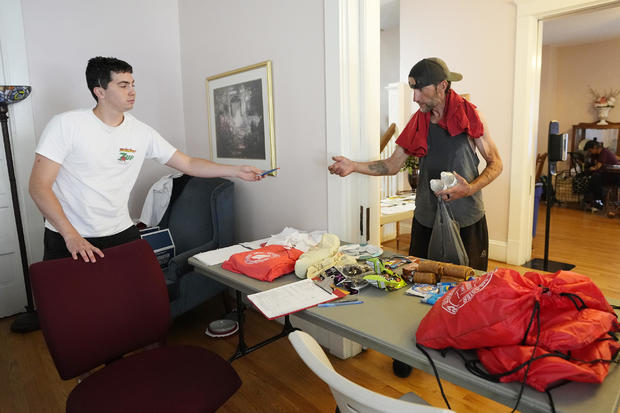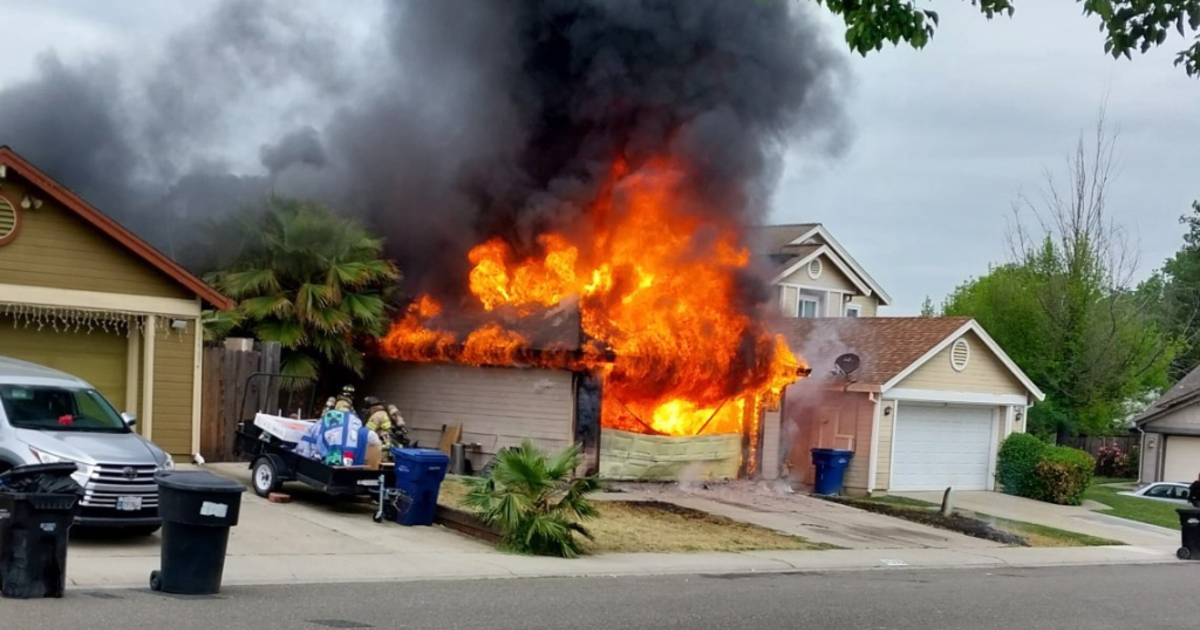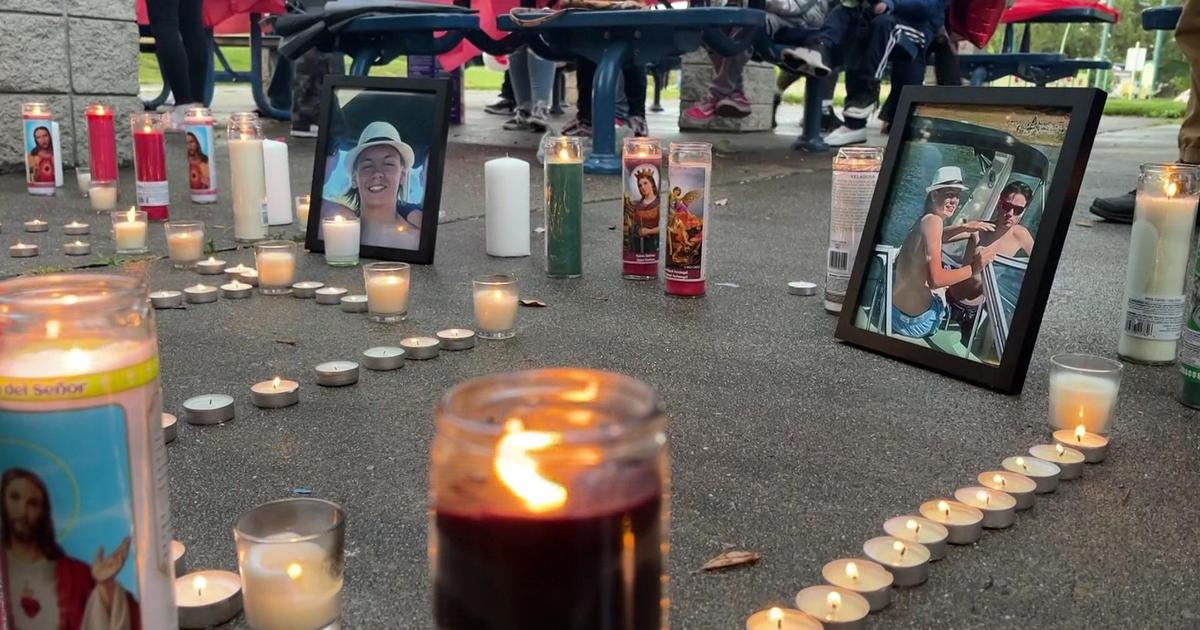Phoenix residents ration air conditioning, fearing future electric bills, as record-breaking heat turns homes into "air fryers"
Saturday marked the 23rd straight day that temperatures have peaked at or above 110 degrees Fahrenheit in Phoenix.
Crispin Chavira, a paramedic and engineer with the Phoenix Fire Department, says this summer has been unrelenting.
"Someone calls in because they see somebody like, at the bus stop, that hasn't moved, and in 118-degree days that we've been having, and that is not normal," Chavira told CBS affiliate KPHO.
At Phoenix's Cortez Park, fire crews responded to a 911 call for a man in distress. The crews placed the man in a harness filled with ice and cool water, a technique that Phoenix fire Capt. Carl Chandler told KPHO saves lives.
"We put some of our IVs on ice...so we can cool that internal temperature quicker for individuals," Chandler said. "We also have come up with different ways of creating an ice bath immediately on scene."
Air conditioning, which made modern Phoenix even possible, is a lifeline.
When a cloudless sky combines with outdoor temperatures over 100, your house turns into an "air fryer" or "broiler," as the roof absorbs powerful heat and radiates it downward, said Jonathan Bean, co-director of the Institute for Energy Solutions at the University of Arizona. Bean knows this not only from his research, he also experienced it firsthand this weekend when his air conditioner broke.
"This level of heat that we are having in Phoenix right now is enormously dangerous, particularly for people who either don't have air conditioning or cannot afford to operate their air conditioner," said Evan Mallen, a senior analyst for Georgia Institute of Technology's Urban Climate Lab.
Yet some are cutting back on AC, trying to bear the heat, afraid of the high electricity bills that will soon arrive.
Camille Rabany, 29, has developed her own system to keep herself and her 10-month-old Saint Bernard Rigley cool during the Arizona heat wave. Through trial and error, Rabany found that 83 degrees Fahrenheit is a temperature she is willing to tolerate to keep her utility bill down.
By tracking the on-peak and off-peak schedule of her utility, Arizona Public Service, with the help of her NEST smart thermostat, Rabany keeps her home that hot from 4 to 7 p.m., the most expensive hours. She keeps fans running and has a cooling bed for Rigley, and they both try to get by until the utility's official peak hours pass.
"Those are the hours that I have it at the hottest I'm willing to have it because I have a dog," she said. Last month, Rabany said her utility bill was around $150.
Emily Schmidt's home cooling strategy in Tempe, Ariz. also centers around her dog. Air conditioning is "constantly a topic of conversation," with her partner, too, she said.
"Sometimes I wish I could have it cooler, but we have to balance saving money and making sure the house isn't too hot for our pets."
With the unrelenting heat of the recent weeks, "I'm honestly afraid what the electric bill will be, which makes it really hard to budget with rent and other utilities."
Katie Martin, administrator of home improvements and community services at the Foundation for Senior Living, said she sees the pet issue, too. Older people on limited incomes are making dangerous tradeoffs and often won't come to cooling centers when they don't allow pets.
"In recent years we are finding that most of the seniors we serve are keeping their thermostat at 80 F to save money," she said.
Many also lack a support network of family or friends they can turn to in case of air conditioner breakdowns.
Breakdowns can be dangerous. Models from Georgia Tech show that indoors can be even hotter than outdoors, something people in poorly-insulated homes around the world are well acquainted with. "A single family, one-story detached home with a large, flat roof heats up by over 40 degrees in a matter of hours if they don't have air conditioning," Mallen said.
The Salvation Army has some 11 cooling stations across the Phoenix area. Lt. Colonel Ivan Wild, commander of the organization's southwest division, said some of the people visiting now can't afford their electricity bills or don't have adequate air conditioning.
"I spoke to one elderly lady and she that her air conditioning is just so expensive to run. So she comes to the Salvation Army and stays for a few hours, socializes with other people, and then goes home when it's not as hot," he said.
While extreme heat happens every summer in Phoenix, Wild said that a couple of Salvation Army cooling centers have reported seeing more people than last year. The Salvation Army estimates that since May 1, they have provided nearly 24,000 people with heat relief and distributed nearly 150,000 water bottles in Arizona and Southern Nevada.
Marilyn Brown, regents professor of sustainable systems at Georgia Tech, said that high air conditioning bills also force people to cut spending in other areas. "People give up a lot, often, in order to run their air conditioner... they might have to give up on some medicine, the cost of the gasoline for their car to go to work or school," she said.
"That's why we have such an alarming cycle of poverty. It's hard to get out of it, especially once you get caught up in the energy burden and poverty," Brown added.





